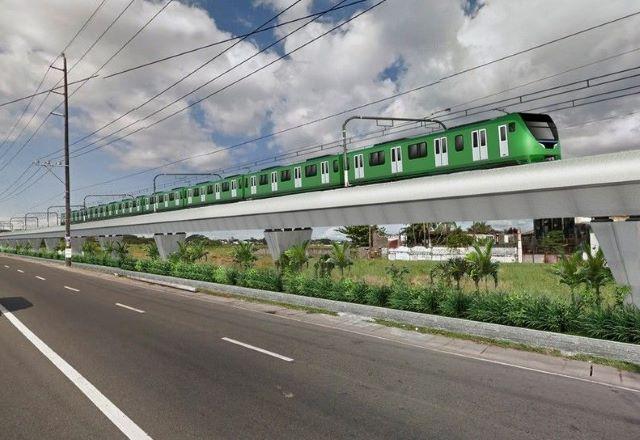DOTr: $1.7-B Malolos-Clark Railway project to start within next 2 months

The Department of Transportation said Thursday that it aims to begin the construction of the Asian Development Bank (ADB)-financed Malolos–Clark Railway Project within November and December, after it signed three civil works contracts amounting to around $1.7 billion or roughly more than P80 billion.
In a virtual signing ceremony, Transportation Undersecretary for Railways Timothy John Batan said the first contract package N-01 covers the construction of 17 kilometers of elevated rail viaduct, including seven balance cantilever bridges and two elevated steel frame station buildings, spanning the municipalities of Malolos and Calumpit in Bulacan, and Apalit and Minalin in Pampanga.
The P28.4-billion contract package N-01 is awarded to the joint venture of Hyundai Engineering & Construction Co. Ltd., Megawide Construction Corp., and Dong-ah Geological Engineering Co. Ltd.
Meanwhile, the P33.7-billion package N-02 involves the construction of 16 kilometers of elevated viaduct structure, including one elevated station building. The second contract will span the municipalities of Minalin, Sto. Tomas, and San Fernando in Pampanga.
“The contractor for this package will be the Acciona Construction Philippines and Daelim Industrial Co., Ltd. joint venture,” Batan said.
The third contract package, N-03, worth P22.8 billion covers the construction of 12 kilometers of elevated viaduct structure, including one elevated station building. It will span the local governments of San Fernando, Angeles, and Mabalakat in Pampanga.
“The contractor for this package will be the Italian-Thai Development Public Company Ltd.,” Batan said.
The Transportation official noted that the signing of the three contracts completes the five civil works packages for the Malolos-Clark Railway project.
In August, the DOTr awarded $728-million worth of civil works contracts to the joint venture of Spain’s Acciona Construction Philippines Inc. and EEI Corporation., and South Korea’s POSCO Engineering and Construction Co., Ltd.
The earlier signed contract package N-04 involves the construction of 6.5 kilometers of railway and the underground Clark International Airport station, which is an integrated airport station to the overall masterplan development of the Clark International Airport.
The package N-05, meanwhile, involves the construction of 33-hectare Clark Railway Depot.
“We are starting construction by November [or] December this year with the mobilization of our three contractors with partial operability scheduled in 2023 and our full completion scheduled 2025,” Batan said.
For his part, ADB Director General for Southeast Asia Ramesh said the signing of the contracts means the Malolos–Clark Railway project construction will now go on full speed, “helping the country’s economic revival over the next 12 to 24 months.”
“When completed by 2025 based on current plans, we expect the project to benefit nearly 350,000 commuters daily. We are proud to work with the Philippine government, development partners, and the private sector to deliver this important flagship infrastructure project using modern technology for the country,” Subramaniam said.
The Malolos-Clark Railway project is expected to create about 24,000 local construction jobs in the next three years. The railway system will also employ 1,400 people.
The project will also spur larger, indirect employment and economic benefits to local businesses and raw material suppliers and manufacturers, according to the ADB.
The Malolos–Clark Railway project is part of the 163-kilometer North–South Commuter Railway Project, which is aimed to ease road congestion in the Philippine capital and its nearby provinces and reduce annual traffic-related economic costs, totaling $18 billion in Metro Manila alone.
The project is expected to cut the travel time between Clark in northern Pampanga province and Manila from two to three hours by bus to one hour by train, with a maximum rail speed of up to 160 kilometers per hour.
It also seen to reduce greenhouse gas emissions by more than 60,000 tons annually and boost economic activity in regional growth centers like Clark.
The Malolos-Clark Railway Project is financed by the ADB through a project loan facility amounting to $2.75 billion.
On the other hand, the Japan International Cooperation Agency, which is co-financing the project, will provide up to $2 billion in additional funding for the rolling stock and railway systems.
"This project is, by far, the ADB’s largest ever financing package for a single project, and is the single largest 'Build, Build, Build' project to date in the history of the Duterte administration,” Transportation Secretary Arthur Tugade said.
“Be assured that we are focused on our goal to make the Filipino life comfortable, the Filipino life convenient,” Tugade said. —LBG, GMA News




